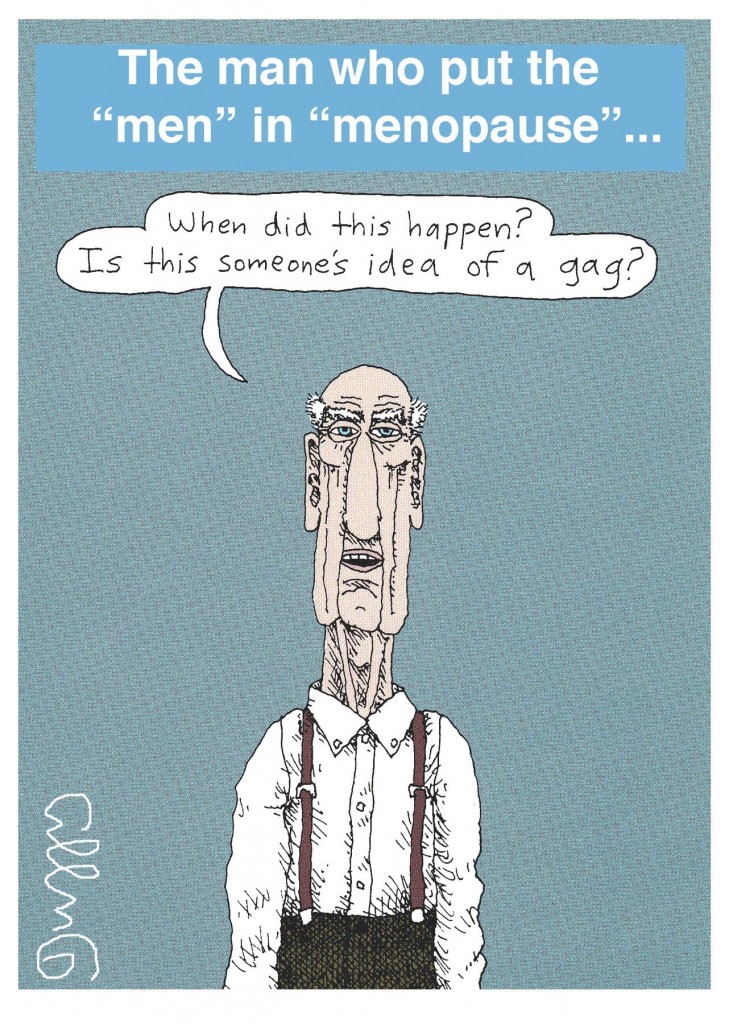Alternative medicine and the ‘pause: what your gynecologist is thinking
Women rank among the highest consumers of complementary and alternative medicine for their healthcare, and according to the National Center for Complementary and Alternative Medicine, age matters. In fact, the largest percentage of adults reporting that they use alternative medicine strategies are 50 to 59 years old, and as many as 42% discuss their use with their doctors. However, what does your gynecologist think about complementary and alternative medicine use? Is she or he supportive and what modalities tend to rank highest in terms of recommendations or endorsements? Moreover, how do gynecologists differ in their opinions?
In the U.S., most ob/gyns appear to believe that convention medicine practices for reproductive issues might benefit by the integration of complementary strategies. However, most of the positive beliefs focus on biofeedback, chiropractic, acupuncture or meditation. Conversely, the doctors report that they would not recommend dietary changes or Traditional Chinese Medicine and a majority were not strong supporters of herbal medicine. This is in direct conflict with German gynecologists. But why should we care about the Germans and what they think!!!?
To digress, I don’t know how many of you are familiar with the Commission E Monographs but, they comprise the world’s leading scientific summaries on the use of medicinal herbs in health and disease. In the late 1970s, the German Ministry of Health established Commission E, a panel of experts charged with evaluating the safety and efficacy of the herbs available in pharmacies for general use. In all, the group published 380 herbal monographs that are considered “the most accurate information available in the entire world on the safety and efficacy of herbs and phytomedicines.” Hence, the Germans definitely have a leg up when it comes to alternative medicine, at least when it comes to the use of herbal alternatives.
So, let’s take a look at a similar survey experience newly published in Complementary Therapies in Medicine, in which over 2,500 respondents indicated a familiarity with the use of alternative medicine specifically for menopausal symptoms. Almost all of the gynecologists had some experience with black cohosh, chaste tree berry and St. John’s Wort and believed them to be effective. And the modality that they felt was most effective? Lifestyle changes and alteration (think: change in dietary habits, physical activity, reduction of stress, etc). The least effective strategies, at least in the eyes of German doctors, were yoga, acupuncture and homeopathy.
The researchers point out that the viewpoint of German doctors is important because these practitioners play an important and consistent role counseling women who complain of menopausal symptoms. The same is true for their U.S. counterparts. And yet, despite the wealth of data in the Commission E monographs, many doctors still continue to question effectiveness and scientific evidence supporting the use of alternatives.
Will this make a difference with regard to the choices that women are making? Probably not, because as I’ve been writing for years, one size does not fit all, especially when it comes to weighing the benefits versus the risks of hormone replacement.
The next time you have your annual with your gynecologist, find out what she or he thinks of complementary and alternative and strategies and most of all, ask why. What she or he is thinking might not be aligned with what you find works best for you.
Read More
Work and the ‘pause: a two way street
Can you believe that three years has passed since I first wrote about Amanda Griffith’s study on menopause and work? The final results are in and they are fairly indicative of the issues that menopause brings to the work environment.
Dr. Griffiths is a professor at the University of Nottingham in the UK. Several years ago, she and her colleagues set out on a journey to discover gender-specific health issues in the workplace other than pregnancy. And, since her target was on women between the ages of 45 and 55, chances are great that the focus would be less on reproductive issues and more on post-reproduction, i.e. menopause. Noting that studies have shown that some women find that their symptoms negatively impact their work life, and that certain work factors, e.g. environment, may increase the intensity of symptoms, Dr. Griffiths also points out that women are generally reluctant to divulge to colleagues or their managers that they are going through menopause. Moreover, even if employers know, what sort of things can they do to help?
Mind you, this study is in the form of an electronic questionnaire and this is the type of design that many will question as introducing bias and issues with recall. However, rest assured, the researchers carefully honed their questions based on an earlier study that was done with a group of women police officers, through one on one interviews with women to discuss the impact of menopause on their health and work and through close review and evaluation by experts in a variety of medical and occupational fields. But enough of the science; let’s get to the meat.
Roughly 900 women were surveyed; about 43% were perimenopausal, 31% in menopause and the rest, on hormones or in menopause due to surgery. Yet, regardless of where they were in their menopause journey, three symptoms were especially problematic when it came to work: feeling less confident, an inability to concentrate and memory issues. Three’s a charm…except when it comes to menopause. The icing on this cake were hot flashes; not only were women unable to control the temperature in their workplace environment (honestly, who does have that ability?!), but having hot flashes became unbearable when the work environments were overly heated or improperly ventilated.
To make a bad situation even worse, over a third of the women said that they worked harder to overcome difficulties so that menopause wouldn’t affect their performance or draw attention to them. Working harder also meant learning the best strategies for coping with their symptoms and worklife. And while, on the surface, this doesn’t sound so terribly awful, can you imagine having to make light of matters, making a list and checking it thrice to avoid mistakes or changing your working hours to hide a condition?!
Managers, take note! What do women want to make their workplace more tolerable? Overwhelmingly, women report that they would be better served if management acknowledged that menopause was a possible health problem and provided more flexible working hours. Better ventilation, air conditioning and temperature control are important. And advice and support? More than 50% of women said that having information and advice from their employers about menopause and coping at work as well as informal support from colleagues would make their work environments more palatable. On the flip side? The researchers say that it might be helpful to explore working women’s attitudes toward their co workers and line managers’ perceptions of menopause; after all, women in the throes of the ‘pause may actually be overestimating others’ abilities to infer menopause status when a hot flash hits and may even have misconceptions about others’ negative perceptions of menopause.
There is no doubt that menopause impacts working ability, environment and relationships. As with any health condition, appropriate support from employers is imperative and may help to reduce stress, help boost performance and insure loyalty. Yet, employers can’t do it alone; women need to be able to communicate their status and their needs. Work and the ‘pause is truly a two way street.
Read MoreWho put the men in menopause? Men!
Who put the ‘men’ in menopause?
Would you believe men?!!!
You must think I am bordering on insanity. But new evolutionary research (published in the June issue of PLOS Computational Biology) posits that cause of menopause is men. You read that correctly; men.
Various explanations have been proposed to explain why menopause, occurs, e.g. the grandmother theory, which assumes that as women enter their post-reproductive lives, they are better able to care for their offspring’s children or the evolutionary tradeoff hypothesis, which suggests that menopause is a tradeoff between future production of females and enhanced offspring survival.But what about the concept of mating and ‘mate choice?’
Mind you, I am venturing into geeky science territory here but briefly, researchers created a computer model and simulation and found the following:
A lack of reproduction has led to menopause.
That is, over time, human males started to display a preference for younger women in selecting their mates and in turn, “stacked the Dawinian deck” against continued reproductive abilities in older women. In other words, natural selection; only this time, it’s gender over nature plus nature over nature. The researchers say that their model not only shows that men had a shift towards preferring younger females, but that certain female-specific mutations led to detrimental effects on female fertility – effects such as an increase in certain hormones and the cessation of ovulation altogether.
The researchers say that infertility in women has not evolved but rather “over time, competition among men of all ages for younger mates has left older females with much less chance of reproducing,” adding that “natural selection is only concerned with the survival of the species through individual fitness so they protect fertility in women while they are most likely to reproduce.” The rub here is not only does fertility cease to exist but women are left with a host of health problems as a result. Yikes!
Interestingly, the lead investigator, Rama Singh, points out that if women had historically been the ones to select younger mates, the situation would have been reversed, with men losing fertility.
Besides the obvious conclusion, that is, men put the men in menopause, what else can we draw from this hypothesis. For one, if male selection drove the ‘pause, it isn’t inconceivable that the paradigm could ultimately be reversed. But that’s science fiction for another planet and another time.
On a side note? The term male menopause is a bit rhetorical, don’t you think? That’s a topic for another day.
Read More
Wednesday Bubble: Got a fix for that?
No bursting going on this week! Need a quick fix? Somehow, Jiffy Lube might not be the wisest choice.
See you Friday. With some big news!
Read MoreThe Stash: guest post by Wendy Scherer
What’s in your ‘just in case’ stash? For many of us, one particular stash is no longer needed. Or is it?! Wendy Scherer weighs in on her stash dilemma: the unneeded tampon.
I’ve always kept a stash of tampons in the guest bathroom and in the master bathroom. Just in case. And, on occasion, it’s been pretty handy for our guests, too. I even bought a really cool old box when we moved into our home 3 years ago – specifically for extra toilet paper and tampons. Love the box.
It occurred to me today that maybe there’s a shelf life for tampons. While this may definitely fall into <em>too much information</em> category, I haven’t needed one since a couple months after we moved here. And clearly, no one in my family (3 sons and a husband) needs any. And frankly, I don’t think we’ve had any guests who have partaken of the bounty, either.
And so, they sit there in the box. Unneeded.
I hate to just throw them away. I know silly, right? But I harken back to memories of needing one desperately and can’t help but feel they should stay. Just in case.
About Wendy Scherer
Wendy Scherer is a wife, a mom, a friend, a social media researcher and marketing strategist. When faced with adversity, she bakes. She’s an eternal optimist. And she’s pretty darn friendly. You can reach her on Twitter at @wendyscherer and or check out her other online obsessions here.
Read More










